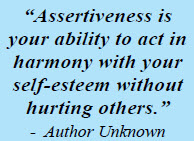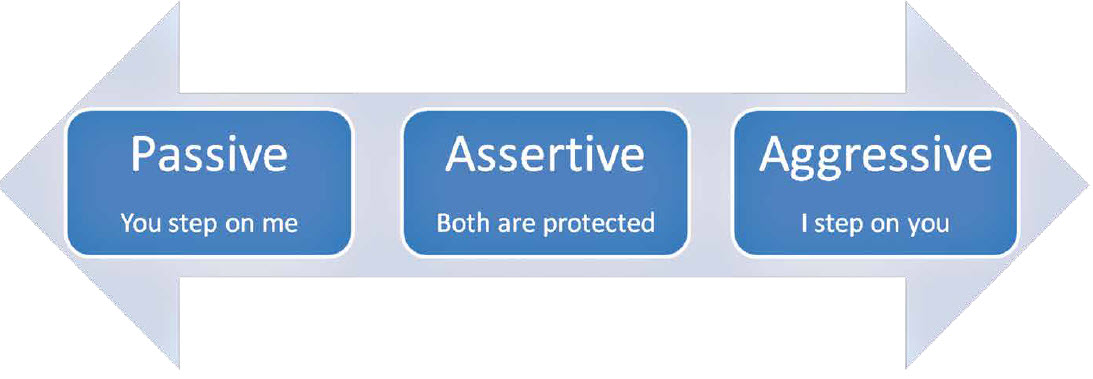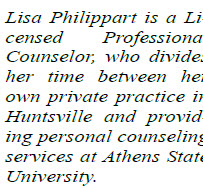 By: Lisa Philippart
By: Lisa Philippart
In my last article, we discussed three forms of communication: passive, aggressive, and passive-aggressive. Hopefully, I convinced you that none of these is truly effective in communicating and interacting with others. Most of us can see ourselves in one or all three of these styles, sometimes depending on the other person, sometimes depending on the situation, and sometimes depending on both. Like you, sometimes I struggle to express myself clearly. Assertive communication is a style of communication in which you can state your opinions and feelings, while firmly advocating for your rights and needs without violating the rights of others. When you are assertive, you are showing that you value yourself, your time, and your emotional, physical, and spiritual needs. You are an advocate for yourself, while being respectful of the rights of others.

So, how do you become an assertive communicator? You state your needs and desires clearly, appropriately, and respectfully. Ditto with your thoughts and feelings. You learn to use “I” statements…I feel, I think, I believe…instead of you are, you always, or you never. Are you someone who is thinking about how to respond or what to say next while the other person is talking? I believe you will communicate esteem for others if you can truly listen without interrupting. Maintain good eye contact and relax your body posture. When it is your turn to speak, use a calm, clear tone, using the phrase, “To be sure I understood what you said, did you mean….?” This shows you were listening and that you can rephrase what the other person said. Communication is about connection. And the best way to feel connected to others is through expressing yourself with competence and control, while not allowing the other party to abuse or manipulate. Assertive communicators are able to stand up for their rights while respectfully and non-judgmentally relating to others.

Have you met an assertive communicator, or even better, are you one who can communicate assertively? Then you know that these folks (or you!) have the ability to connect to others without being controlling. The key, in fact, is to be in control of thoughts and emotions. The impact of a pattern of assertive communication is that these individuals are able to move forward because they address issues and problems as they arise. One of the most difficult challenges most of us face is being able to create a respectful environment, whether it be at home, at school, or at work, where others can grow and advance to their fullest potential. I hope you have or have had the wonderful experience of working for an assertive communicator. This person allows you to learn and mature in a safe, productive environment. (Or if you are the boss, I hope your employees can say this about you.)

What are some thoughts or phrases you can begin to use assertively moving forward? Here are some examples:
“We are both entitled to express ourselves respectfully to each other.”
“I can’t control others, but I can control myself.”
“I’m 100% responsible for my own happiness.”
“I respect the rights of others as much as I respect my own rights.”
The bottom line here is that if you can learn to speak clearly, honestly, and effectively, you will convey confidence, self-control, and responsibility. Assertiveness is fundamental for good mental health and healthy relationships.
By: Lisa Philippart
Licensed Professional Counselor


